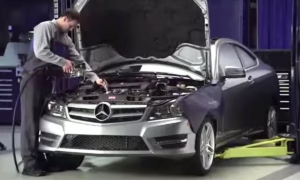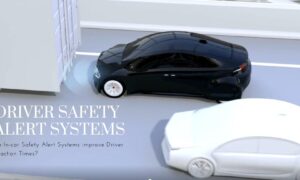In the not-so-distant past, car ownership was a rite of passage, a symbol of freedom, and a cornerstone of personal mobility. People aspired to own their vehicles, and the automobile industry thrived on selling cars to individuals and families. However, as we stand at the precipice of a new era in transportation, the landscape of car ownership is undergoing a transformation, thanks to advanced automobile technology. In this article, we’ll delve into the changing dynamics of car ownership and explore whether we are truly ready for the shift.
Introduction
The Current State of Car Ownership
Car ownership has been deeply ingrained in our culture for decades. It symbolized independence, convenience, and the freedom to travel at will. Yet, it’s important to recognize that traditional car ownership has its drawbacks. Cars are expensive to purchase, maintain, and operate. They contribute to traffic congestion, air pollution, and excessive use of limited urban space for parking.
Moreover, many vehicles remain unused for the majority of the day, as they sit parked at homes or workplaces. The inefficiency of this situation has spurred a shift towards a more sustainable and economically viable future of transportation.
Advanced Automobile Technology: The Game Changer
The advent of advanced automobile technology has led to significant advancements in the automotive industry. These innovations encompass electric vehicles (EVs), autonomous vehicles, shared mobility solutions, and more. Here’s a closer look at some of these game-changing technologies:
Electric Vehicles (EVs): EVs have gained popularity due to their reduced environmental impact and lower operating costs. The shift towards electric vehicles is essential in reducing our reliance on fossil fuels and mitigating climate change.
Autonomous Vehicles: Self-driving cars are poised to revolutionize transportation. These vehicles are equipped with sophisticated sensors and artificial intelligence, enabling them to navigate without human intervention. The potential benefits include enhanced safety, increased productivity, and reduced traffic accidents.
Shared Mobility: The rise of ride-sharing services and car-sharing programs has made it easier for people to access transportation without the need for car ownership. It’s a cost-effective and environmentally friendly alternative for many urban dwellers.
Connectivity and IoT: Modern vehicles are equipped with connectivity features, such as real-time GPS, smartphone integration, and data sharing. This technology not only enhances the driving experience but also aids in traffic management and navigation.
The Evolution of Car Ownership
The amalgamation of these advanced technologies is reshaping the traditional model of car ownership. We are witnessing a transition from individual car ownership to a more diverse and flexible ecosystem. Here are some of the key elements contributing to this evolution:
Subscription Services: Car subscription services allow consumers to access a fleet of vehicles for a fixed monthly fee. This approach eliminates the need for a long-term commitment to a single car, offering variety and adaptability.
Ride-Sharing: Services like Uber and Lyft have become ubiquitous, providing a convenient and economical way to travel without owning a car. For many city dwellers, it has become more cost-effective to rely on ride-sharing than to maintain a personal vehicle.
Peer-to-Peer Car Sharing: Platforms like Turo enable individuals to rent out their personal vehicles to others when they’re not using them. This fosters efficient use of cars and provides an extra source of income for owners.
Autonomous Fleets: As self-driving technology matures, we can expect to see fleets of autonomous vehicles for hire. This approach could redefine urban transportation, reducing the need for personal car ownership in densely populated areas.
Are We Ready for the Shift?
While advanced automobile technology promises a brighter, more sustainable future for transportation, the question remains: Are we ready for the shift? Here are some key considerations:
Infrastructure: A seamless transition to electric vehicles and autonomous technology requires significant infrastructure upgrades. This includes charging stations for EVs, reliable 5G networks for autonomous vehicles, and smart traffic management systems.
Regulatory Framework: Governments and regulatory bodies must establish clear guidelines and safety standards for autonomous vehicles. Policymakers need to adapt to these changes to ensure public safety and the smooth integration of these technologies.
Consumer Acceptance: As with any major shift, it’s crucial for consumers to embrace these new technologies. Educating the public about the benefits and safety of EVs and autonomous vehicles is essential for their widespread adoption.
Economic Implications: The shift away from traditional car ownership may have economic repercussions, including potential job displacement in the auto industry. Preparing for these changes and retraining the workforce is paramount.
Environmental Impact: While EVs offer a more sustainable mode of transportation, the environmental impact of manufacturing batteries and disposing of them must be considered. Continued research into cleaner battery technology is vital.
Data Privacy and Security: As vehicles become more connected, data privacy and cybersecurity become increasingly critical. Safeguarding personal information and preventing cyber-attacks on autonomous vehicles are paramount concerns.
Conclusion
In conclusion, advanced automobile technology is undeniably changing the landscape of car ownership. While the shift towards more sustainable and efficient transportation solutions is promising, it comes with challenges. Infrastructure, regulations, public acceptance, and economic implications are some of the hurdles we must overcome. It’s imperative for governments, industries, and consumers to collaborate and adapt to this evolving landscape. Only by doing so can we fully harness the potential of advanced automobile technology and ensure that we are indeed ready for the shift. The future of car ownership is on the horizon, and it’s up to us to navigate the path forward wisely.



































